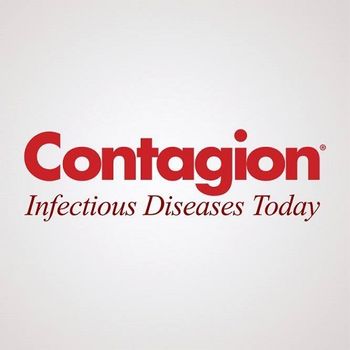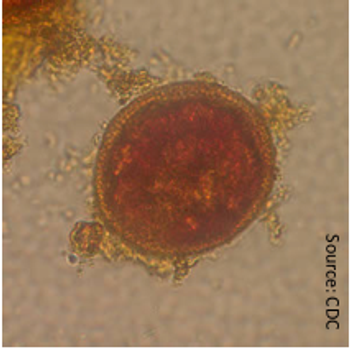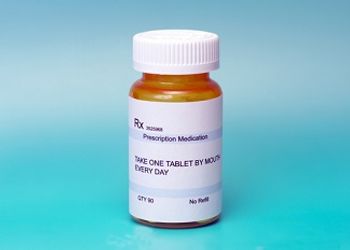
Investigators from England report the longest adult HIV remission observed since the Berlin patient.

Investigators from England report the longest adult HIV remission observed since the Berlin patient.

Over a 12-month study, there was a 13.9% increase of retention with viral load suppression among participants who received rapid viral load results following point-of-care testing.

The Contagion® editorial staff will be providing exclusive written and video coverage from CROI 2019.

Investigators at Memorial Sloan Kettering Cancer Center determined valganciclovir was the preferred first-line preemptive therapy to prevent cytomegalovirus in patients following an allogeneic hematopoietic cell transplantation.

The length of mechanical friction applied to the needleless connector of a central venous catheter before insertion may make a difference in rate of disinfection.

A study conducted at the Salvador Zubirán National Institute of Health Sciences and Nutrition found that there were no cases of active tuberculosis detected in HSCT patients.

Investigators detected no relevant change in systemic concentrations of 9 probe drugs when rezafungin was dosed concomitantly.

A study reports that a respiratory virus infection diagnosis was not linked with a decrease in antibiotic exposure and use of respiratory viral panels did not affect clinical outcomes.

Following implementation of stewardship program-guided blood culture communication process, the time to optimal therapy was 9.2 hours shorter for patients at Saint Luke’s Hospital.

Antibiotic prescription following ventilation in children with RSV-LRTI was associated with a 1.21-day shorter duration of ventilation and a 2.07-day shorter length of hospital stay.

Hospital-onset sepsis is twice as deadly as community-onset sepsis and increases the risk of death 3-fold, according to the results of a cohort study comprising 2.3 million adult patients.

Emily Ricotta, PhD, ScM, highlights the increase in non-albicans candidiasis, which tends to be more antibiotic resistan,t in both bloodstream and sterile-site infections.

Melvin Weinstein MD, discusses the emerging technologies that will advance the field of blood culture testing.

Julie Ann Justo, PharmD, discusses the myths associated with penicillin allergies and why it is important to determine a patient's true penicillin allergy-status.

Kenneth Sherman, MD, discusses hepatitis B infections in immunocompromised patients and what clinicians should expect to see in the future for hepatitis B treatment.

Secondary analyses indicate that bezlotoxumab is more effective in reducing C diff recurrence in patients with pre-specified risk factors.

Sahil Khanna, MBBS, MS, discusses the efficacy of fecal transplants and new investigational candidates that are being evaluated in clinical trials.

Maureen Spencer, RN, M.Ed., discusses how rapid molecular diagnostics are changing the treatment timeline for sepsis and Clostridium difficile (C diff).

Glenn Tillotson, PhD discusses the development of new antibiotics and therapies for C diff during an era when antibiotic resistance is a serious global health threat.

As clinicians and health care executives work to strike a balance between reducing costs and improving clinical outcomes, the importance of sepsis identification and treatment cannot be underscored enough, and starts with evaluating current practices for infection management.

Edmund A. Hooker, MD, DrPH, discussed the gaps in disinfection in the hospital and how hospital beds can be properly sanitized to prevent the spread healthcare-associatedted infections.

Brad Spellberg, MD, highlights research that indicate shorter courses of therapy are safer and as effective as longer ones, as well as the importance of randomized controlled trials.

Highest amounts of Toxocara egg contamination were in areas that could contain food droppings or animal waste.

Data from a pooled analysis of the REVIVE-1 and 2 studies found iclaprim to be non-inferior to vancomycin based on earl clinical response in patients with wound infections.

The phase 3 CAPSTONE-2 trial shows treatment with baloxavir marboxil significantly reduced the time to improvement of flu symptoms compared with placebo.

ID Week 2018 was held October 2-7, 2018, in San Francisco, California. The conference featured results of new studies on a variety of infectious disease topics as well as advancements being made in the field. Here are 5 key takeaways from the meeting.

A study of more than 500 outpatient clinics reveals a new view of antibiotic overprescribing practices in the United States.

We sat down with several infectious disease experts to learn more about their research and asked them to share what they’re taking home from ID Week 2018.

Approximately 10% of US patients report having an allergic relation to penicillin, yet only 1% of the population are truly allergic.

Cristen Whittaker, PharmD, explains the findings of an analysis that compared length of stay, readmission, and costs in patients with ABSSSIs who received oritavancin or vancomycin.